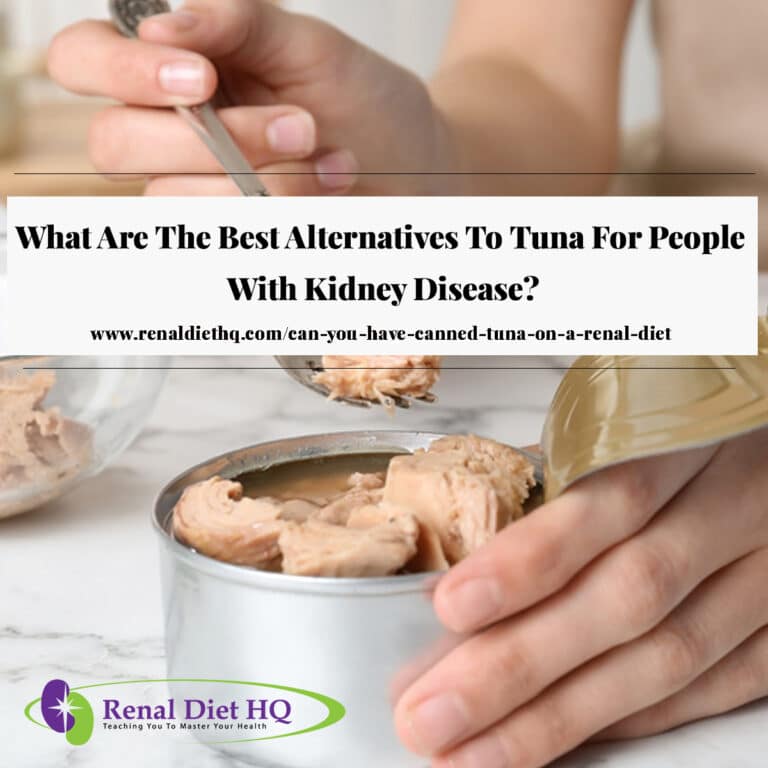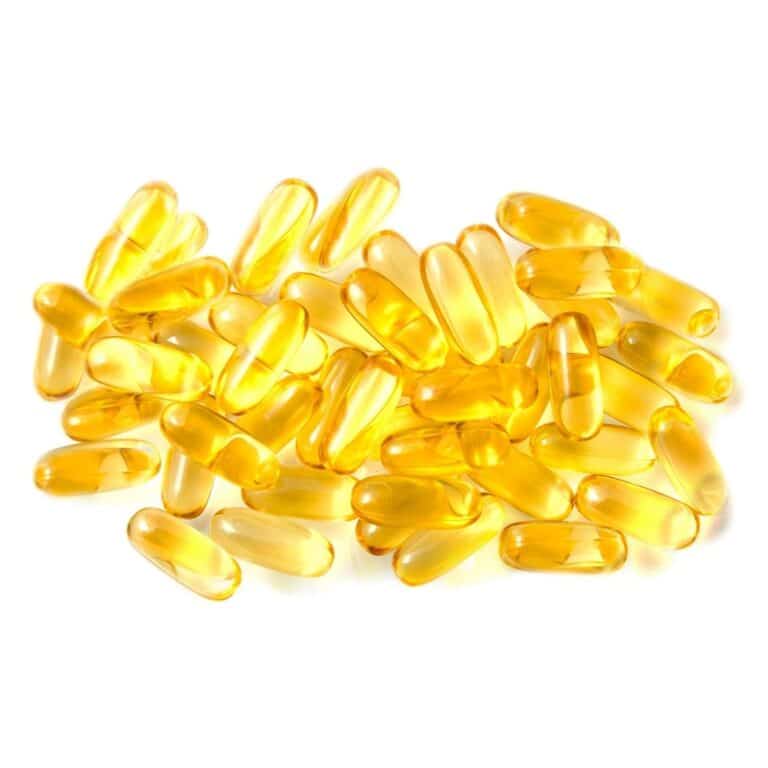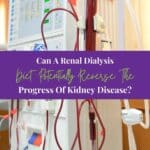Renal Dialysis Diet Vs Non Renal Dialysis Diet
The details of renal diets are mesmerizing and guaranteed to make your head spin! There’s a diet for pre-dialysis. Another diet for those with kidney disease. There’s a diet for those who are getting dialysis, too. It makes a lot of sense to ask the question, what type of renal diet should I follow when not on dialysis?
The best answer is really to work with your dietitian pretty closely to make sure you understand your diet fully. That’s because there can be many factors that influence the type of diet you need. Not all renal diets are alike; your neighbor and you could both be on a renal diet but they could be vastly different. One of the major influences is the stage of kidney disease you are in. Another is any other disease process occurring in your body. And a final consideration could be your chewing ability.
You'll learn the ins and outs of a renal dialysis diet versus a non-dialysis CKD diet. These insights help you navigate your dietary needs effectively, improving your well-being and enhancing your ability to serve others.
You'll be empowered to make informed food choices, and thus, take control of your health.
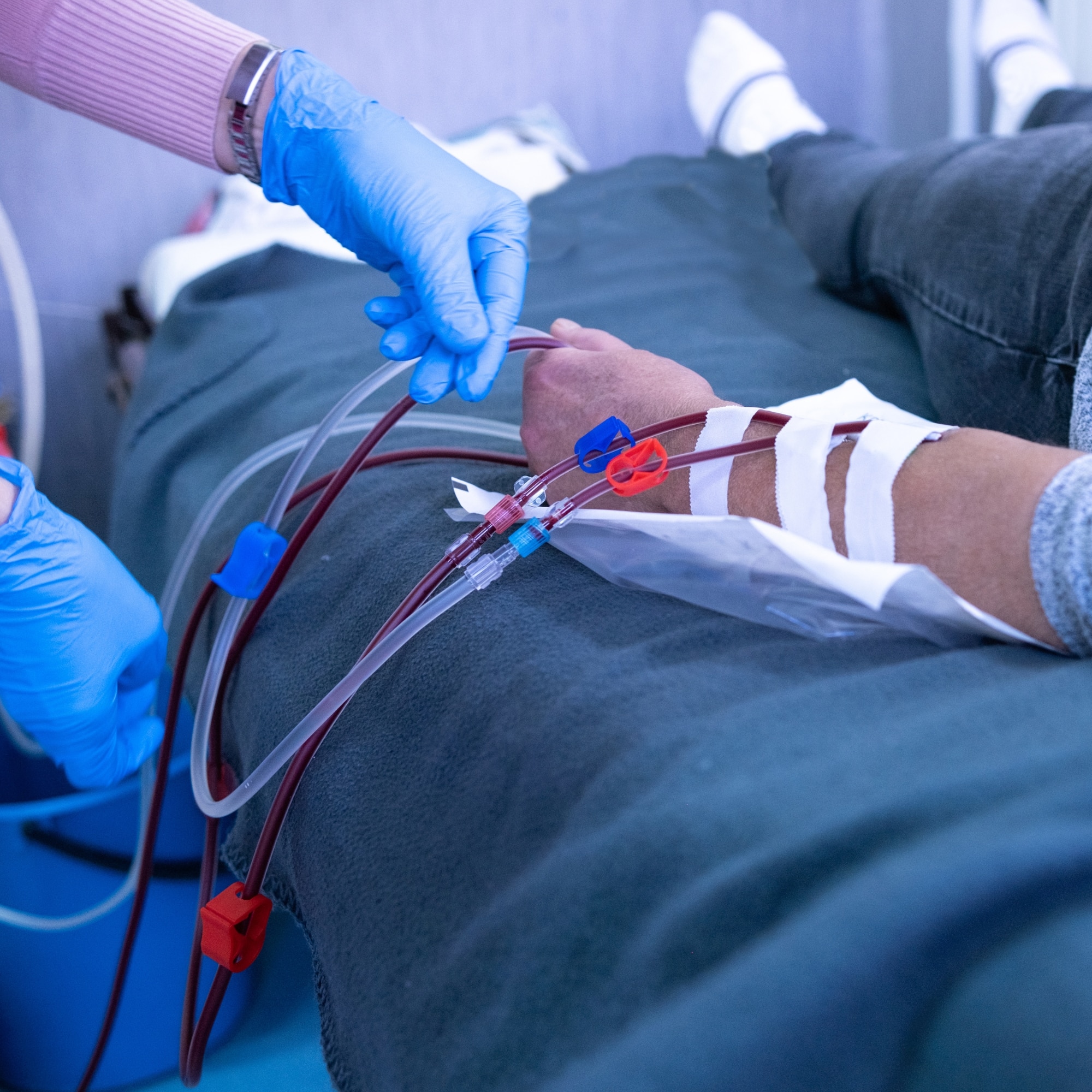
Jump to:
- Key Takeaways
- Understanding the Basics of a Renal Dialysis Diet
- The Role of Individual Dietary Restrictions in Renal Dialysis
- Successful Management of a Renal Dialysis Diet
- Dietary Restrictions Within a Non-Dialysis CKD Diet
- An In-depth Look at a Non-Dialysis CKD Diet
- The Motivation Behind Following a Non-Dialysis CKD Diet
- Fluid Intake Considerations for Non-Dialysis CKD Diet
- The Importance of Diet in CKD
- Frequently Asked Questions
- Dialysis or Not Yet, Diet Matters
Key Takeaways
- Renal dialysis diet is a strict restriction of protein, sodium, potassium, and phosphorus (food to eat for hyperparathyroidism), while non-renal dialysis diet is less strict but still requires monitoring and moderation.
- Renal dialysis diet focuses on limiting fluid intake, CKD non-dialysis diet allows for more flexibility in this regard.
- Renal dialysis diet may require additional vitamin and mineral supplementation, while non-renal dialysis diet focuses on individualized meal planning and nutrient intake assessment.
- Both diets require adherence to dietary restrictions, monitoring of progress, and nutritional counseling, but renal dialysis diet may involve more frequent monitoring and adjustments.
Understanding the Basics of a Renal Dialysis Diet
Navigating a renal dialysis diet is essential for individuals with kidney disease undergoing dialysis. This diet is carefully tailored to support kidney function and overall health while managing the dietary restrictions that come with renal issues.
Understanding the basics of a renal dialysis diet is crucial for maintaining optimal well-being during dialysis treatment. This section will delve into the fundamentals of this specialized diet, including dietary restrictions, nutrient management, and practical tips for those on the journey of renal dialysis.
For More Recipes and Ideas --->> Get Your Free Meals and Recipes That Are Perfect for Pre-Dialysis Diets, Pre-Dialysis with Diabetes, or Dialysis Diets.
Why The Need for a Dialysis Renal Diet
The need for a dialysis renal diet arises from the challenges posed by end-stage renal disease (ESRD), a condition where the kidneys have lost their ability to function effectively. In ESRD, waste products and extra fluids accumulate in the body, leading to life-threatening complications. Dialysis is a critical treatment for ESRD, as it artificially filters blood to remove these waste products and excess fluids.
However, during the dialysis process, certain nutrients and electrolytes can be lost or imbalanced. To address this, a specialized renal diet is necessary. The dialysis renal diet is carefully crafted to align with the needs of individuals undergoing dialysis.
It aims to limit the intake of substances like phosphorus, potassium, sodium, and fluid that the compromised kidneys struggle to manage. By following this diet, patients can better control their blood chemistry, minimize complications, and improve their overall well-being while undergoing regular dialysis sessions. It plays a crucial role in maintaining the health and stability of individuals with ESRD.

Diet's Impact on Hemodialysis
A renal dialysis diet, also known as a kidney-friendly diet, is a specialized eating plan designed for individuals with kidney disease who are undergoing dialysis treatment due to kidney failure. Wondering if you can eat while on the dialysis machine?
Its primary goal is to minimize the accumulation of waste products and fluids in the body, which the kidneys can no longer efficiently remove due to their impaired function. This diet helps maintain a balance of essential nutrients while managing dietary restrictions associated with kidney issues.
Dietary restrictions in a renal dialysis diet include limitations on protein, phosphorus, potassium, sodium, and fluid intake. Phosphorus and potassium restrictions aim to prevent imbalances that can harm bones and increase cardiovascular risk.
Sodium restriction helps manage blood pressure, and fluid intake is monitored to avoid excess fluid buildup, which can lead to edema and heart issues. Judicious consumption of high amounts of protein is encouraged since patients undergoing dialysis can suffer from protein losses during the treatment process.
In contrast, the diet encourages the consumption of high-quality sources of protein, limited in phosphorus and potassium, along with an emphasis on fresh fruits and vegetables with lower potassium content. Properly managing these dietary aspects is essential to support kidney function and improve overall health in individuals undergoing dialysis.
The Role of Individual Dietary Restrictions in Renal Dialysis
As you navigate through the complexities of a renal dialysis diet, it's crucial to understand the role of individual dietary restrictions. Personalized diet plans can significantly improve your health condition by effectively managing the intake of certain nutrients.
Handling these dietary limitations isn't just about avoiding certain foods, it's about balancing your nutritional needs with the requirements of your treatment.
Personalized Diet Plans
Personalized diet plans are invaluable for dialysis patients as they cater to individual needs and health conditions. Dialysis is a highly personalized treatment, and a renal diet should be equally tailored. Here's how personalized diet plans benefit dialysis patients:
- Nutrient Customization: Every patient's dietary requirements differ based on their lab results, residual kidney function, and overall health. Personalized plans ensure that nutrient intake aligns with specific needs, preventing malnutrition or overloading.
- Managing Blood Chemistry: Dialysis patients need strict control of phosphorus, potassium, sodium, and fluid levels in their blood. Customized diets help achieve this balance, reducing the risk of complications.
- Addressing Coexisting Conditions: Many dialysis patients have comorbid conditions like diabetes or hypertension. Personalization allows for dietary modifications to address these conditions effectively.
- Adherence Improvement: Tailored plans consider an individual's food preferences and cultural factors, increasing the likelihood of patients adhering to the diet.
- Long-Term Success: Personalized diets evolve as a patient's condition changes, ensuring that the diet remains effective throughout their dialysis journey.
Personalized diet plans empower dialysis patients to better manage their health, improve outcomes, and enhance their overall quality of life by aligning dietary choices with their unique needs and circumstances.
Handling Personalized Dietary Limitations
Patients with comorbidities, such as diabetes, hypertension, or heart disease, often require additional dietary considerations beyond those with kidney disease alone. Here are some examples:
- Diabetic Kidney Disease (DKD): As mentioned earlier, DKD patients need careful carbohydrate management to control blood sugar levels while also monitoring protein, phosphorus, and potassium intake.
- Hypertension: Patients with both CKD and hypertension should adhere to a low-sodium diet to manage blood pressure. Reducing sodium helps prevent fluid retention and supports overall cardiovascular health.
- Cardiovascular Disease: CKD patients with cardiovascular disease may need to follow a heart-healthy diet. This includes limiting saturated and trans fats, cholesterol, and sodium while emphasizing fiber-rich foods, fruits, and vegetables.
- Gout: For CKD patients with gout, purine-rich foods like organ meats and certain seafood should be restricted to manage uric acid levels.
- Gastrointestinal Issues: Those with CKD and gastrointestinal problems may require tailored diets, which could involve modifications to address issues like acid reflux or malabsorption.
These examples underscore the importance of personalized dietary plans that consider not only kidney health but also any concurrent medical conditions. Consulting a registered dietitian can help CKD patients navigate these complexities effectively.
Successful Management of a Renal Dialysis Diet
You'll find that the management of a renal dialysis diet heavily relies on the guidance of a dietitian. They play an instrumental role in tailoring your diet to your specific medical needs, ensuring optimal kidney function.
Additionally, keeping a close eye on your meal tracking is key to maintaining balanced nutrient intake and preventing further renal complications.
Dietitian's Role in Management
Dietitians play a pivotal role in managing the renal dialysis diet, providing expertise and support essential for patients with kidney disease. They create personalized diet plans tailored to each patient's unique health status, comorbidities, and kidney disease stage, focusing on nutritional requirements while managing restrictions like phosphorus, potassium, sodium, and protein intake.
Education is central to the dietitian's role. They educate patients on food choices, portion control, reading labels, and cooking techniques that align with dietary restrictions. This empowers patients to make informed dietary decisions and actively manage their health.
Dietitians maintain an ongoing relationship with patients, regularly assessing progress and adjusting diet plans as needed. They ensure patients receive essential nutrients while managing dietary protein intake to prevent malnutrition and may recommend vitamin and mineral supplements when necessary.
Dietitians also provide emotional support, helping patients cope with dietary restrictions and offering strategies to stay motivated and compliant. In summary, dietitians are integral in helping dialysis patients manage their renal diet effectively, improve overall health, and enhance their quality of life.
Importance of Meal Tracking
Meal tracking is vital for dialysis patients as it allows them to monitor their dietary intake closely and maintain better control over their health. For individuals with kidney disease, tracking meals helps ensure they adhere to their prescribed renal diet, which is critical for managing their condition.
By recording food and fluid consumption, patients can identify patterns and make necessary adjustments to meet their dietary restrictions, such as limiting sodium, potassium, phosphorus, and protein intake. Consistent tracking also helps prevent malnutrition or overconsumption of nutrients. It empowers patients to take charge of their health, improve their nutritional status, and support the effectiveness of their dialysis treatments.
Moreover, meal tracking can facilitate communication with healthcare providers and dietitians, allowing for more personalized and effective dietary guidance. Overall, it plays a pivotal role in helping dialysis patients maintain better health and well-being.
Dietary Restrictions Within a Non-Dialysis CKD Diet
Within a non-dialysis Chronic Kidney Disease diet, dietary restrictions play a pivotal role in preserving kidney function and overall well-being. This section explores these essential restrictions, guiding individuals with CKD on managing protein, phosphorus, potassium, sodium, and fluid intake. By understanding and adhering to these restrictions, individuals can proactively slow the progression of kidney disease and improve their quality of life.
Protein Limitations
In a CKD non-dialysis diet, a low protein diet is crucial to managing kidney health. Excessive dietary protein intake can strain the kidneys, leading to the accumulation of protein waste products. To address this, individuals with CKD often need to reduce their protein consumption, particularly animal-based proteins like meat, poultry, and fish.
Instead, they can opt for high-quality, low-protein sources like plant-based proteins, beans, and tofu. Proper protein management helps alleviate the kidneys' workload and minimizes the risk of further kidney damage, making it an essential aspect of a non-dialysis CKD diet.
Managing Sodium Intake
Managing sodium intake is crucial in a pre-dialysis renal diet for individuals with Chronic Kidney Disease. High sodium levels can lead to fluid retention and increased blood pressure, which is harmful to compromised kidneys. Reducing salt and sodium-rich processed foods is essential. Cooking at home with fresh ingredients allows better control over sodium intake. Additionally, reading food labels and choosing low-sodium alternatives helps in managing sodium intake effectively.
By limiting sodium, individuals with CKD can mitigate complications, such as hypertension and fluid overload, and slow kidney disease progression, supporting overall kidney health before the need for dialysis arises.
Potassium Control
Managing potassium intake is crucial in a pre-dialysis renal diet for individuals with Chronic Kidney Disease. With renal insufficiency, damaged kidneys struggle to remove excess potassium from the body, potentially leading to dangerous levels in the blood. To control potassium intake, individuals should avoid high-potassium foods like bananas, oranges, and potatoes. Instead, they can opt for lower-potassium alternatives.
Proper cooking techniques, like leaching vegetables and using fresh rather than dried fruits, can also reduce potassium content. Regular monitoring of potassium levels with health care providers is essential to maintain a balanced intake and prevent complications, such as irregular heart rhythms, associated with high potassium levels.
Restricting Phosphorus
Restricting phosphorus is crucial in a non-dialysis CKD diet because impaired kidney function can lead to difficulties in eliminating excess phosphorus from the body. High levels of phosphorus can disrupt the balance of minerals in the blood, resulting in weakened bones, vascular calcifications, and cardiovascular complications.
A low-phosphorus diet involves avoiding or limiting high phosphorus foods, such as dairy products, nuts, seeds, and processed foods. Additionally, individuals may require phosphorus binders to prevent phosphorus absorption. By closely monitoring and controlling dietary phosphate intake, people with kidney disease can help manage their condition and reduce the risk of related health issues, preserving their overall well-being.
An In-depth Look at a Non-Dialysis CKD Diet
Exploring the nuances of a non-dialysis CKD diet is essential for individuals managing chronic kidney disease before reaching the dialysis stage. While there are similarities between predialysis and dialysis renal diets, understanding the differences is equally vital. By comparing these aspects to those of a dialysis renal diet, individuals can gain a comprehensive understanding of how to manage their CKD effectively and tailor their nutritional choices to their specific needs, ultimately aiming for better kidney health.
Non-Dialysis CKD Diet vs Dialysis CKD Diet
A non-dialysis CKD diet shares several similarities with a dialysis CKD diet, primarily in terms of managing kidney health and overall nutrition. Both diets emphasize limitations on certain nutrients like sodium, phosphorus, and potassium to alleviate the strain on the kidneys. Additionally, they promote protein control to mitigate waste buildup.
However, key differences exist. A dialysis CKD diet usually allows for slightly more liberal protein intake compared to a non-dialysis diet. Pre-dialysis patients need to focus more on ensuring slow progression rather than managing waste, unlike dialysis patients who rely on the treatment for waste removal. Consequently, phosphorus restriction is less stringent for pre-dialysis individuals.
Despite these distinctions, personalized dietary plans should consider factors like comorbid conditions, medication interactions, and individual kidney function. Consulting with a healthcare team, including a dietitian, is crucial to tailor the diet to the specific needs of each CKD patient, whether in the non-dialysis or dialysis phase.
Managing Dietary Restrictions Through CKD Stages
Chronic Kidney Disease progresses through five stages, with each stage characterized by a different level of kidney function. As CKD advances, dietary recommendations evolve to manage the condition effectively.
In the early stages (Stages 1 and 2), when kidney function is relatively preserved, dietary changes mainly focus on managing risk factors like hypertension and diabetes. People with kidney disease at these stages are also often advised to adopt a heart-healthy diet low in sodium and saturated fats.
As CKD progresses to Stage 3, when kidney function moderately declines, dietary restrictions on protein, sodium, potassium, and phosphorus become more stringent. Protein intake may be moderated to reduce waste buildup, and sodium intake is limited to control blood pressure. Potassium and phosphorus restrictions aim to minimize electrolyte imbalances.
In Stages 4 and 5, which represent advanced CKD and end-stage renal disease, respectively, dietary changes are even more restrictive. Patients on dialysis may require further adjustments to their diet to manage waste and fluid buildup.
Throughout all stages, individualized dietary plans, created in consultation with healthcare professionals, are essential to ensure patients receive optimal nutrition while managing CKD effectively.
The Motivation Behind Following a Non-Dialysis CKD Diet
Managing Chronic Kidney Disease through a non-dialysis diet plays a pivotal role in preserving kidney function and addressing associated health issues like high blood pressure. This section delves into the critical role that dietary choices and restrictions play in CKD management.
By understanding the importance of a CKD non-dialysis diet, individuals can take proactive steps to safeguard their kidney health and overall well-being while working closely with healthcare professionals to tailor dietary strategies to their specific needs.
Preserving Kidney Function
A well-managed CKD non-dialysis diet can be a powerful tool in preserving kidney function and slowing the progression of chronic kidney disease. By adhering to dietary restrictions and making strategic food choices, individuals with CKD can mitigate stress on their kidneys.
This includes limiting protein intake, reducing sodium and potassium consumption, and monitoring phosphorus levels. Such dietary modifications help manage complications like high blood pressure and electrolyte imbalances, which are common in CKD.
Additionally, controlling protein and phosphorus intake can reduce the burden on the kidneys, delaying the need for dialysis or transplant. Working closely with a healthcare team, including dietitians, ensures that patients receive personalized guidance to optimize their CKD non-dialysis diet for kidney protection.
Controlling Blood Pressure
A pre-dialysis renal diet plays a crucial role in managing blood pressure and preventing cardiovascular complications in individuals with chronic kidney disease.
High blood pressure is a common comorbidity of CKD and can exacerbate kidney damage. By adhering to dietary recommendations, such as reducing sodium intake, CKD patients can effectively lower their blood pressure levels. Lowering sodium helps decrease fluid retention and the strain on blood vessels, reducing the risk of heart-related issues like heart attacks and strokes.
Furthermore, a well-balanced pre-dialysis renal diet can contribute to overall cardiovascular health. It emphasizes heart-friendly nutrients, such as lean proteins and unsaturated fats, while limiting foods high in saturated fats and cholesterol. This dietary approach aids in managing cholesterol levels and reducing the risk of atherosclerosis, which can lead to heart problems.
Incorporating these dietary strategies, along with proper medication management and lifestyle changes, can significantly improve cardiovascular outcomes in CKD patients and contribute to a better quality of life.
Fluid Intake Considerations for Non-Dialysis CKD Diet
On a CKD non-dialysis diet, you need to keep a close eye on your fluid intake. Excessive fluid retention can exacerbate your kidney condition, making adjustments to your diet and medication crucial.
It's a balancing act, but with careful monitoring and guidance from your healthcare team, you can maintain optimal fluid balance.
Monitoring Fluid Retention
Managing fluid restriction is crucial in a non-dialysis CKD diet to prevent fluid overload, which can strain the kidneys and worsen kidney function. Here are some strategies to effectively manage fluid intake:
- Monitor Fluid Intake: Keep a daily log of your fluid intake, including water, beverages, and foods with high water content. This helps you stay within your prescribed limit.
- Limit Sodium: Reducing sodium (salt) intake is essential because it can lead to thirst and increased fluid consumption. Avoid processed and high-sodium foods.
- Choose Low-Fluid Foods: Opt for foods that are lower in fluid content, such as cooked fruits and vegetables instead of raw ones.
- Control Thirst: Try using lemon or lime wedges to flavor water without adding significant fluid volume. Chewing gum or sucking on ice chips can also help manage thirst.
- Work with a Dietitian: Collaborate with a registered dietitian who specializes in renal nutrition. They can create a personalized meal plan tailored to your fluid restrictions and dietary needs.
- Medication Management: If prescribed by your health care provider, take diuretic medications as directed to help control fluid balance.
Adhering to these strategies and closely following your health care provider's recommendations can help individuals with CKD effectively manage fluid intake and maintain kidney function.
Fluid Retention Complications
Fluid retention, also known as edema, is a common complication in non-dialysis dependent chronic kidney disease patients. Excess fluid can accumulate in various parts of the body, leading to several complications:
- High Blood Pressure: Fluid retention increases blood volume, which can raise blood pressure. Uncontrolled hypertension can further damage the kidneys.
- Swelling: Edema often causes swelling in the ankles, legs, and sometimes the face, making it uncomfortable and restricting mobility.
- Shortness of Breath: Accumulated fluid in the lungs can lead to difficulty breathing, especially when lying down.
- Heart Strain: Fluid buildup can strain the heart, potentially leading to heart failure in severe cases.
- Electrolyte Imbalance: Fluid retention may disrupt the balance of electrolytes like sodium and potassium in the body, causing complications like hyperkalemia.
- Skin Issues: The skin over areas with edema can become stretched, itchy, and prone to infections.
Managing fluid retention in non-dialysis CKD typically involves restricting fluid intake, following dietary guidelines, and possibly using medications like diuretics under medical supervision. Regular monitoring by healthcare professionals is crucial to prevent and address complications associated with fluid overload.
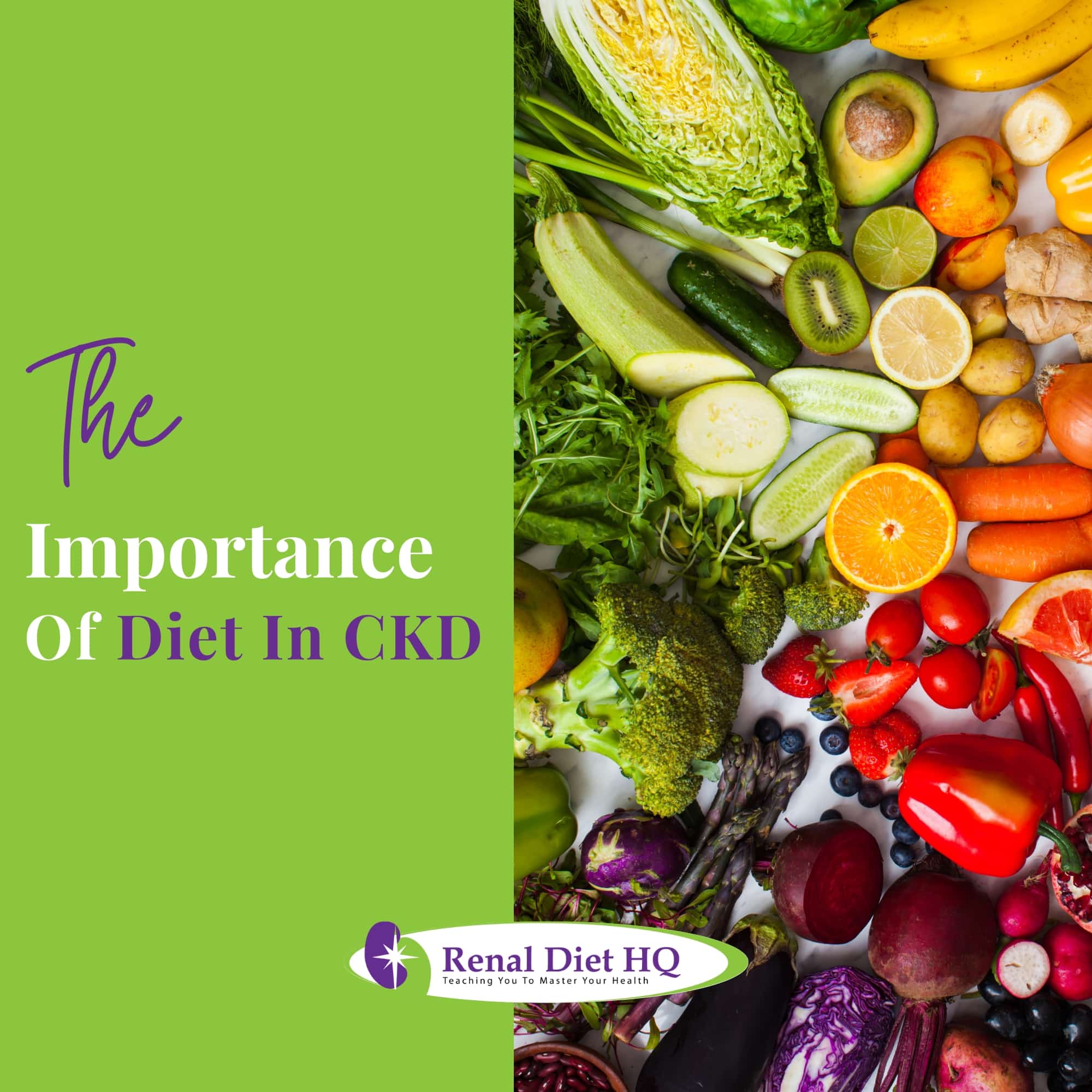
The Importance of Diet in CKD
Diet plays a pivotal role in managing chronic kidney disease, particularly when combined with conditions like diabetic kidney disease and cardiovascular concerns. This section delves into the critical intersection of diet, CKD, and these comorbidities.
Discover how dietary choices can help control blood sugar levels and safeguard cardiovascular health. Whether you're navigating CKD alongside diabetes or simply aiming to maintain optimal heart health, the right dietary strategies are essential.
Diet Effects on Diabetic Kidney Disease
Proper renal diet management holds immense significance in addressing Diabetic Kidney Disease (DKD), a common complication of diabetes. DKD occurs when prolonged high blood sugar levels damage the delicate filters in the kidneys.
An effective renal diet tailored for DKD aims to regulate blood sugar and protect kidney function. It often involves controlling carbohydrate intake to manage glucose levels and monitoring protein consumption to alleviate stress on the kidneys. Reducing sodium helps manage blood pressure, a crucial factor in DKD. Additionally, addressing phosphorus and potassium levels in the diet is essential as they can become imbalanced in DKD.
By adhering to a well-planned renal diet, individuals with DKD can slow down the progression of kidney damage, mitigate the risk of complications, and enhance overall health. These dietary adjustments, combined with appropriate medical care and lifestyle changes, form a holistic approach to managing the challenges posed by Diabetic Kidney Disease.
Heart Healthy Diet for CKD
A heart-healthy diet plays a pivotal role in managing Chronic Kidney Disease to mitigate the heightened risk of cardiovascular complications.
Among CKD patients, cardiovascular issues like heart disease, hypertension, and stroke are alarmingly prevalent due to factors such as fluid retention, hypertension, and altered mineral balances. To avert these complications, it is essential for CKD patients to adopt dietary strategies tailored to their condition.
A heart-healthy diet in CKD primarily involves the reduction of sodium intake to control blood pressure and fluid retention. Additionally, balancing macronutrients, including lean protein, complex carbohydrates, and healthy fats, assists in regulating blood sugar and cholesterol levels, further promoting heart health.
Monitoring potassium and phosphorus intake is crucial to prevent imbalances that can exacerbate cardiovascular problems. Adhering to prescribed fluid restrictions aids in preventing excess fluid buildup, reducing the heart's workload.
Moreover, managing blood sugar levels is paramount for CKD patients with diabetes. It is strongly advisable for individuals to seek guidance from a registered dietitian experienced in CKD to formulate a personalized dietary plan that takes into account the CKD stage, any existing comorbidities, and individual dietary preferences.
By conscientiously following these dietary recommendations, CKD patients can significantly reduce the risk of cardiovascular events, ultimately leading to improved overall health and a longer life.
Frequently Asked Questions
Suddenly discontinuing a renal dialysis diet can lead to several deleterious effects for individuals with kidney disease. These may include dangerous electrolyte imbalances, such as elevated potassium and phosphorus levels, which can disrupt heart rhythm and damage bones respectively. Additionally, fluid retention can occur, leading to swelling and increased blood pressure. To avoid these complications, it's crucial to adhere to the prescribed diet plan and make any dietary changes under the guidance of a healthcare professional or registered dietitian who specializes in kidney disease management.
A renal dialysis diet cannot reverse kidney disease but can help manage its symptoms and slow its progression. The primary goal is to reduce the workload on the kidneys by limiting protein, phosphorus, sodium, and potassium intake. This can alleviate some of the strain on the kidneys and improve overall health, potentially delaying the need for dialysis. However, once kidney damage has occurred, it is typically irreversible. Dialysis, kidney transplant, or other medical interventions are necessary for advanced stages of kidney disease.
Dialysis or Not Yet, Diet Matters
Managing your diet when dealing with kidney disease, whether on dialysis or not, is like navigating a complex maze. It's crucial to understand the specifics of your dietary needs to prevent further health complications.
Every bite and sip counts, making it essential to monitor and manage your diet and fluid intake carefully. Always remember, the right diet can help you live a healthier life, even with kidney disease.





